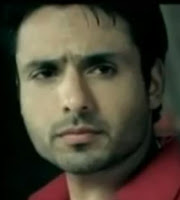Paris hilton pays homage to gypsy jazz great Django
The founder of gypsy jazz, with its driving rhythms and nimble solos, grew up just outside Paris and lost the use of his fingers in a fire.
Doctors said he would never play guitar again.
But the accident only drove the 18-year-old Reinhardt to come up with a unique style involving lightning-fast solos and chord changes that still baffle guitar teachers today.
Paris is marking the 100th anniversary of Reinhardt's birthday with a torrent of concerts and commemorative events.
Several jazz clubs are putting on Django extravaganzas and on Thursday a square -- just a few metres (yards) from where Reinhardt's family once parked their caravans -- was named after him.
"He was a Roma, he was a rebel, and he is someone who represents the culture of travelling people," said Paris mayor Bertrand Delanoe during the naming ceremony at the St Ouen flea market north of Paris.
Behind him, a band made up mainly of Reinhardt's descendants played east European-tinged gypsy pieces in the glacial grey air against a backdrop of passing cars and bleak social housing.
The gathering of press and fedora-hatted relatives, however, could hardly sit still and soon crowded the stage to dance.
"It's moving. It's great. I'm very thankful," David Reinhardt, one of Django's grandsons, said of featuring in a string of concerts to commemorate his grandfather.
David Reinhardt, 23, forms part of a new generation of gypsy jazz musicians such as the guitarist Christian Escoude. Another is Django Reinhardt's great-grandson Swann Berger, who at age 11 has been hailed as a prodigy.
SWING
Jean Baptiste "Django" Reinhardt was born in Belgium on January 23, 1910. He taught himself to play without being able to read music, and despite losing the use of two of his fingers went on to perform in Montmartre cafes such as Jimmy's Bar and Bricktop.
Django later formed an all-string band, the Quintette of the Hot Club of France, which quickly made an international name for itself. The band was key in bringing violins and guitars to the forefront, giving birth to the jazz manouche style.
World War Two forced the band to break up and Django took to the road, roaming about in his caravan from Switzerland to North Africa.
After touring the United States with Duke Ellington in 1946, Reinhardt tried to update his music with the bebop jazz of saxophonist Charlie Parker and trumpeter Dizzy Gillespie.
However, many felt Reinhardt lost his old flair in his later years and he retired until his sudden death in 1953.
The village of Samois, where Reinhardt retired, is some 40 miles (60 km) upriver from Paris on a neck of the Seine and has become gypsy jazz's spiritual home, still attracting fans.
But at the various Django commemorations, the jubilant thrumming gypsy chords had listeners on the edge of their seats.
"Django symbolises an unattainable goal, that of becoming an artist who possesses all the musical qualities and an exceptional speed of execution," said Thomas Dutronc, who played at a concert in Reinhardt's honour on Thursday.
"He could play guitar at a crazy speed without ever making a mistake and always fell on his feet like a cat. No one comes up to his ankle," he told French daily France Soir.


Comments
Post a Comment